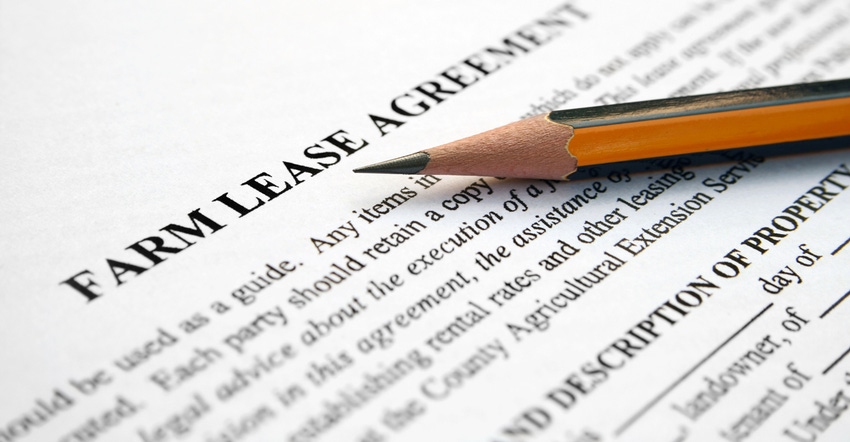January 13, 2020

We are well into 2020 and many of you have already made New Year’s resolutions.
Let’s talk about one thing you can change in 2020 that you might not have included in your resolutions: Developing a written lease for your farm.
Putting leases in writing provides landowners and tenants with a written record of the agreement. It can also help settle disputes down the road.
I know what you are saying right now: “But Paul, I’ve always used handshake deals with my agricultural leases.”
I know that verbal leases have been the norm for most farmers over the years. The landowner and tenant often view a verbal lease as showing trust in one another. Although a verbal lease may convey confidence, written leases record what the two parties have agreed to, and this can prevent misunderstandings.
Having a written lease can formalize what the parties have agreed to and will provide a record of it. This written record can clear up many of the uncertainties that can exist with verbal leases.
For example, with verbal leases, the notice to terminate the lease is dictated by state law. The amount of time required to give notice to terminate can vary from state to state. In Maryland, this means that the landlord or tenant who wishes to terminate the lease must provide a six-month notice to terminate. In Pennsylvania, state law requires only 15 days for leases of less than one year in duration and 30 days for leases greater than one year in length.
Think about it: If you live in Pennsylvania, is 15 or 30 days enough time to remove equipment, livestock or other property from the farm? If you live in Maryland, is six months enough time? Developing a written lease can help clear up this uncertainty to provide you enough time to remove your property from the rented farmland.
What about crops still growing on the farmland? The answer is not entirely clear in many jurisdictions. Many states have adopted the doctrine of emblements, which allows a tenant to cultivate, harvest and remove crops planted before terminating the lease. In many states this doctrine only applies to annual crops such as corn, wheat and barley, but not perennial crops such as apples or many forage crops.
Clarifying the tenant’s ability to harvest crops after the lease terminates can resolve future issues.
These are just some examples of issues I’ve seen with verbal leases over the years. They can be cleared up by merely developing a written lease.
You might be asking yourself, “Paul, how do I start developing a written lease?”
Resources exist to help you develop a written lease. The Center for Agriculture and Food Systems has recently launched a free Farm Lease Builder tool. This lease builder allows you to develop a customizable lease at reduced legal costs. Although it’s free, it is still advisable to have a licensed attorney in your state review it.
The University of Maryland also offers resources to assist in developing a farmland lease.
Goeringer is an Extension legal specialist with the University of Maryland’s Department of Agricultural and Resource Economics.
About the Author(s)
You May Also Like






